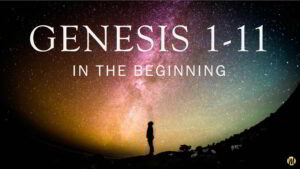 Genesis 1–11: God’s Design for Nationhood (Pt. 4/5)
Genesis 1–11: God’s Design for Nationhood (Pt. 4/5)
Category: Theological Anthropology
Genesis 1–11: God’s Design for Civilization (Pt. 3/5)
 Genesis 1–11: God’s Design for Civilization (Pt. 3/5) Creation Mandate
Genesis 1–11: God’s Design for Civilization (Pt. 3/5) Creation Mandate
God’s purpose for humanity is expressed in the Creation Mandate. Understood in context, it is to turn the rest of the earth outside Eden into Eden. It involves building a global civilization that is in fellowship with God and consistent with his will. After sin came into the world and humanity was driven out of Eden, the mandate could no longer be fulfilled as intended. The mandate was derailed but not defeated because God cannot be defeated. Through Christ the Creation Mandate is reclaimed so that it will be fulfilled as intended. This is seen in the Great Commission, which is about making disciples of all nations so that they observe everything Christ has commanded in every aspect of their life (a global civilization consistent with God’s will); and Christ is with disciples of all nations through the Spirit (a global civilization in fellowship with God). It is crucial to recognize that the Great Commission is the renewed Creation Mandate. For it means disciples of Christ cannot dichotomize the spiritual from the secular in any aspect of their life—a problem that has been plaguing modern Christianity.
You can view the full video at
Genesis 1–11: God’s Design for Civilisation (Pt. 3/5) Creation Mandate
Genesis 1–11: God’s Design for Personhood (Pt. 2/5)
 Genesis 1–11: God’s Design for Personhood (Pt. 2/5)
Genesis 1–11: God’s Design for Personhood (Pt. 2/5)
God created humanity “in his image.” The meaning of “the image of God” matters; it is our identity as human beings. Today there is a tendency in OT scholarship to confuse the purpose for being made in God’s image with the meaning of being made in God’s image. This video gets beneath the English translation and concludes that to be made in God’s image is to be like God in some ways—in terms of humanity’s God-like nature of personhood, qualities of love and justice, and abilities to communicate and create. All this is so that humanity could fulfill God’s purpose for them. Persons can think, reason and make decisions; God’s design for personhood is for humanity to think, reason and make decisions in a way not independent of God and his will. Humanity began to deviate from this design when Adam and Eve ate from the tree of the knowledge of good and evil. To appreciate why in modern civilization humanity is on a path to self-destruction we need to return to what happened in the garden of Eden.
Transgenderism as Ancient Gnosticism in New Garb. A Response*
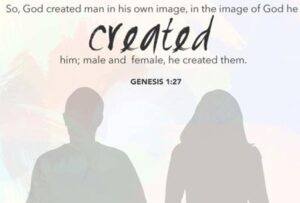 Gnostic Anthropology
Gnostic Anthropology
One of the primary themes of gnostic anthropology is that the material body is a part of a “lesser” reality, one that is not connected to the “true” self. This understanding of the human person intentionally disconnects the body from the soul, as the body (including biological sex) needs to be transcended in order to achieve salvation…
Transgenderism
The American Psychological Association defines “transgender” as “an umbrella term for persons whose gender identity, gender expression, or behavior does not conform to that typically associated with the sex to which they were assigned at birth.” Continue reading “Transgenderism as Ancient Gnosticism in New Garb. A Response*”
The Soul Between Death and Resurrection (the Intermediate State). Section 2. (BADR Part 4)
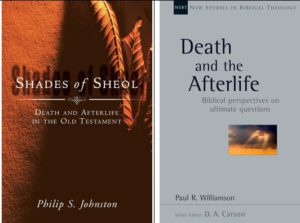
The Soul Between Death and Resurrection (the Intermediate State). Section 2
Kairos Podcast Series 8: Biblical Anthropology, Death and Resurrection (BADR Part 4)
Question: In the light of the terrifying prospect of Sheol awaiting the dead, what led Israel to believe in the resurrection of the dead? What is the basis for Israel’s hope (Dan. 12:2-3)?
A. The OT gives two reasons. First, the OT affirms that Yahweh is the living God (Psa. 18:46; Jer. 23:36; Hos. 1:10). With the ever living God, death cannot be the sovereign power in the universe. Second, God’s reign of righteousness and justice extends even to Sheol (Job 26:6; Psa. 139:8; Prov. 15:11; Amos 9:2). Vindication will come at the final resurrection where the wicked will be punished and the righteous will be rewarded (Dan. 12:2). Continue reading “The Soul Between Death and Resurrection (the Intermediate State). Section 2. (BADR Part 4)”
The Soul Between Death and Resurrection (the Intermediate State). (BADR Part 3)
 The Soul Between Death and Resurrection (the Intermediate State). (BADR Part 3)
The Soul Between Death and Resurrection (the Intermediate State). (BADR Part 3)
Kairos Podcast Series 8: Biblical Anthropology, Death and Resurrection – BADR Part 3
Question: Some scholars believe that the Bible teaches not dualism but monism. Can you explain the competing view of monism?
Death involves disintegration of a person’s vital power, cessation of bodily life, and separation of the body and the soul (nepeš): Gen. 35:18; 1 Kings 19:4). Does the soul continue to exist after the death of the person? The monist theologian’s answer is “no”.
Monism argues that according to the Bible, a human being is not divided into separate parts, i.e. body, soul, and spirit, but he exists as a unified or holistic self. The soul and the body are just different aspects of a person. Since existence entails bodily existence, there is no possibility of disembodied existence of the soul after death.
The purpose of this video is to show that monism contradicts the Bible which ascribes to the disembodied soul some forms of consciousness in the intermediate state between death and final resurrection.
You may view the video at:
The Soul Between Death and Resurrection (the Intermediate State). (BADR Part 3)
Related Post:
Old Testament Anthropology as “Dualistic Holism” or “Holistic Dualism”. (BADR Part 2)
Old Testament Anthropology as “Dualistic Holism” or “Holistic Dualism”. (BADR Part 2)
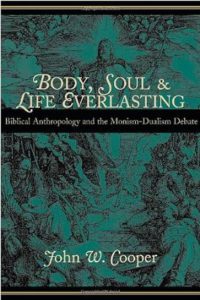
𝐊𝐚𝐢𝐫𝐨𝐬 𝐏𝐨𝐝𝐜𝐚𝐬𝐭 𝐒𝐞𝐫𝐢𝐞𝐬 𝟖: 𝐁𝐢𝐛𝐥𝐢𝐜𝐚𝐥 𝐀𝐧𝐭𝐡𝐫𝐨𝐩𝐨𝐥𝐨𝐠𝐲, 𝐃𝐞𝐚𝐭𝐡 𝐚𝐧𝐝 𝐑𝐞𝐬𝐮𝐫𝐫𝐞𝐜𝐭𝐢𝐨𝐧 (𝐁𝐀𝐃𝐑 𝐏𝐚𝐫𝐭 𝟐)
𝐐𝐮𝐞𝐬𝐭𝐢𝐨𝐧: 𝐘𝐨𝐮 𝐝𝐞𝐟𝐞𝐧𝐝𝐞𝐝 𝐛𝐢𝐛𝐥𝐢𝐜𝐚𝐥 𝐝𝐮𝐚𝐥𝐢𝐬𝐦, 𝐚𝐧𝐝 𝐭𝐡𝐞𝐧 𝐲𝐨𝐮 𝐞𝐱𝐩𝐥𝐚𝐢𝐧𝐞𝐝 𝐭𝐡𝐚𝐭 𝐭𝐡𝐢𝐬 𝐯𝐢𝐞𝐰 𝐢𝐬 𝐡𝐨𝐥𝐢𝐬𝐭𝐢𝐜. 𝐇𝐨𝐰 𝐜𝐚𝐧 𝐭𝐡𝐞𝐬𝐞 𝐭𝐰𝐨 𝐯𝐢𝐞𝐰𝐬 𝐛𝐞 𝐜𝐨𝐧𝐬𝐢𝐬𝐭𝐞𝐧𝐭? \
While the Bible affirms anthropological dualism, it also views human beings holistically where all their psychosomatic faculties work together as an integrated unity. However, biblical holism differs from philosophical holism or physicalism which considers the organism or anthropological entity as comprising a single substance or stuff. In contrast, biblical “functional holism” recognizes the integration and interrelation of all the parts in the existence and proper operation of the whole, without assuming that each part would necessarily cease to function or disintegrate into nothingness if the whole were broken up. To conclude, OT anthropology is both dualistic and holistic. It may be described as either biblical “holistic-dualism” or “dualistic holism”.
Old Testament Anthropology as “Dualistic Holism” or “Holistic Dualism”
OT Anthropology: The Constituent Elements of Man. (BADR Part 1)
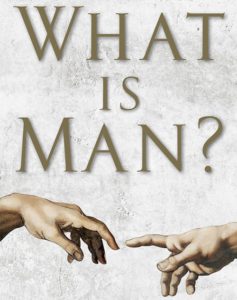
OT Anthropology: The Constituent Elements of Man. (BADR Part 1)
Kairos Podcast Series 8: Biblical Anthropology, Death and Resurrection (BADR Part 1).
A. Contemporary Criticism Against Biblical Dualistic Anthropology
Under the influence of prominent liberal scholars like Adolf Harnack in the early 20th century, the movement to decouple biblical theology from the alleged influence of Greek or Platonic philosophical influences gained momentum…
The distinctive usage of biblical anthropological terms should alert us to the need to examine Scripture on its own terms in order to resolve the controversy between holism and dualism. This post shall examine closely how the terms which describe the constituent elements of man are used in the OT…
B. Man’s Constituent Elements
Bāsār, Flesh
Note that flesh does not connote the principle of sin or the man’s unregenerate nature. It connotes a nature which is frail and transient: “all flesh is grass” (Isa. 40:6; Psa. 78:39). However, “flesh” is open to God’s positive influence so that a heart of stone could be changed into a heart of flesh, something which is soft and yielded to God (Ezek. 36:26).” Continue reading “OT Anthropology: The Constituent Elements of Man. (BADR Part 1)”
All that is Solid Melts into Air: The Recentred but Empty Self
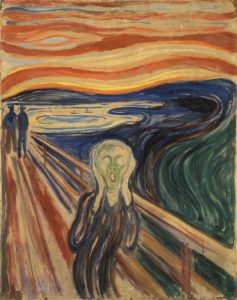 Philosophical and Social Origins of Identity Politics and the LGBTQ Sexual Revolution. Part 2.
Philosophical and Social Origins of Identity Politics and the LGBTQ Sexual Revolution. Part 2.
Turning and turning in the widening gyre
The falcon cannot hear the falconer;
Things fall apart; the centre cannot hold;
Mere anarchy is loosed upon the world,
The blood-dimmed tide is loosed, and everywhere
The ceremony of innocence is drowned;
The best lack all conviction, while the worst
Are full of passionate intensity.
W.B. Yeats, The Second Coming
A) Loss of meaningful sacred order and providence
Since antiquity, people acknowledged that there is a natural order of law and morals. Life is best lived when it is lived in accordance with the requirements of natural order. Among the Greeks, the Stoics taught that man must live in harmony with the rational and purposive order in nature. Ancient Israel also acknowledged a natural order, one that is implanted into creation by the Creator. According to the sages of ancient Israel, knowledge of God comes from experiencing God’s activity in the world. Faith in God’s providence means trusting in the reliability of the creation which the benevolent God has ordered to support human life and guide man in his moral knowledge and action. Gerhard von Rad explains, “This order [of creation] was, indeed, simply there and could, in the last resort, speak for itself. The fact that it quietly but reliably worked towards a balance in the ceaselessly changing state of human relationships ensured that it was experienced over and over again as a beneficent force. In it, however, Yahweh himself was at work in so far as he defended goodness and resisted evil. It was he who was present as an ordering and upholding will in so far as he gave a beneficent stability to life and kept it open to receive his blessings.”1Gerhard von Rad, Wisdom in Israel (SCM, 1972), pp. 191-192. Continue reading “All that is Solid Melts into Air: The Recentred but Empty Self”
The Vanished Soul and Quest for the Authentic Self in Modern Western Thought
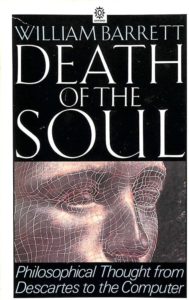 Philosophical and Social Origins of Identity Politics and the LGBTQ Sexual Revolution. Part 1.
Philosophical and Social Origins of Identity Politics and the LGBTQ Sexual Revolution. Part 1.
Due to the influence of the Bible, the majority of thinkers in Western society for centuries have acknowledged the reality of the soul which is distinct and yet intimately linked to the body. According to the Christian tradition, what we refer to as body and soul are aspects of one unitary reality and process, that is, the body and soul are viewed as a psychophysical unit, the human person. The physical body changes through time but the soul persists as the person interacts continuously with the world. It is the continuity of the soul, with its faculties of intellect and will, which ensures coherence and defines the personal identity of the person.1Due to constrains of a short article, the words “soul”, “self” and “mind” are used in this post interchangeably in the light of overlaps in their semantic domain. For example, the immortality of the soul is linked to the immateriality of the mind and the mind is a power of the soul. However, we should be sensitive to the nuances of each thinker in how he uses these words.
Knowledge of the soul is inseparable from knowledge of God.2John Calvin notes, “true and sound wisdom, consists of two parts: the knowledge of God and of ourselves. But, while joined by many bonds, which one precedes and brings forth the other is not easy to discern. In the first place, no one can look upon himself without immediately turning his thoughts to the contemplation of God, in whom he “lives and moves”… Again, it is certain that man never achieves a clear knowledge of himself unless he has first looked upon God’s face, and then descends from contemplating him to scrutinize himself.” John Calvin, Institutes of the Christian Religion (Westminster, 1960), Book 1.1.1, 2. However, from the 17th century, many Western scholars and scientists began to reject both the idea of God and the soul. Indeed, the soul has become absent or irrelevant in contemporary intellectual discourse. How did this happen?
To answer this question, we begin with the French philosopher, Rene Descartes. Continue reading “The Vanished Soul and Quest for the Authentic Self in Modern Western Thought”